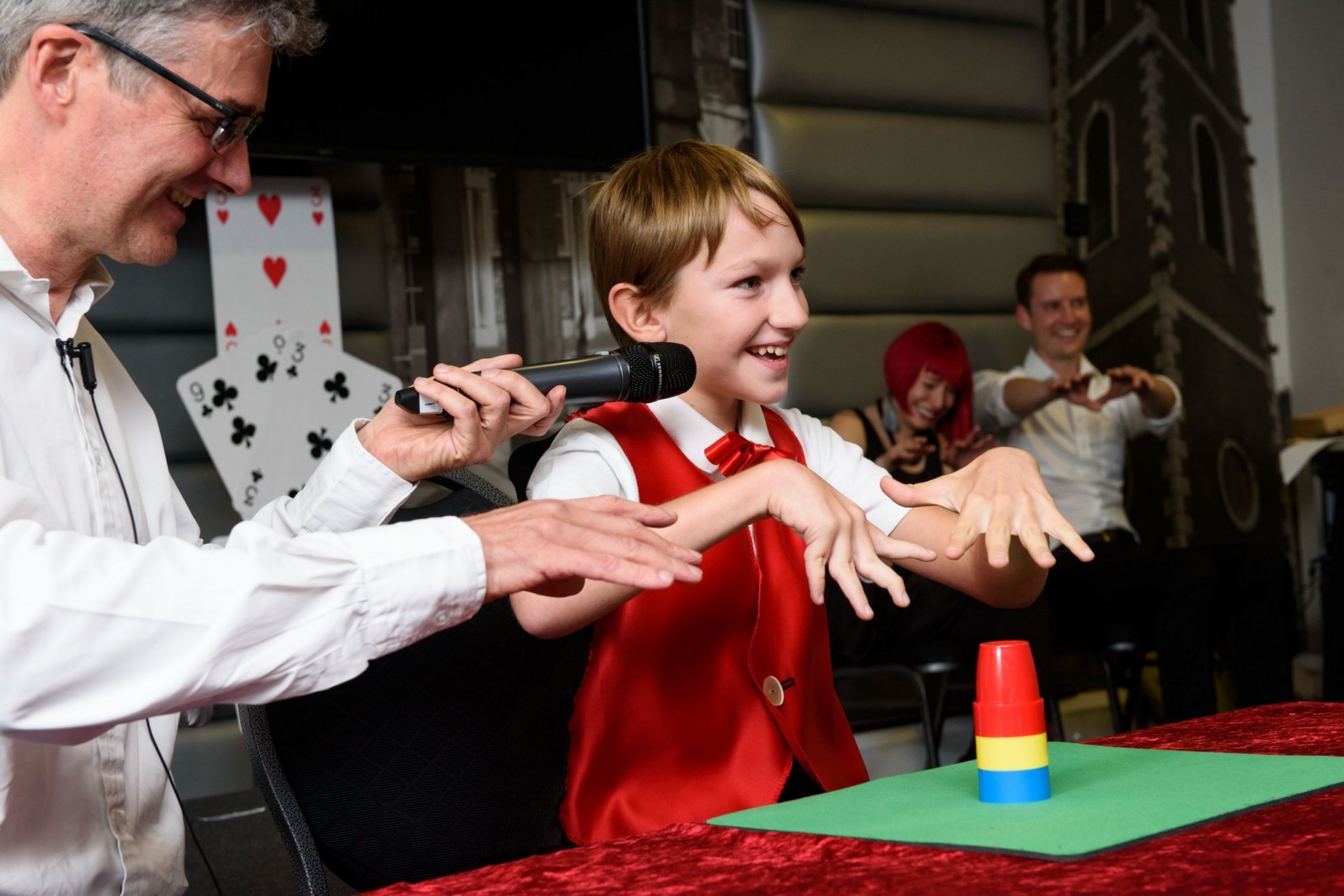
A magical approach to healthcare
Could paintbrushes, violins and even magic wands soon be crucial tools for medical professionals? Yvonne Farquharson hopes so.
If you were to ask medical professionals to list equipment crucial to their work, I doubt many would say a paintbrush, a violin or even a magic wand. Yet Breathe Magic uses magical therapy to improve mobility for young people with hemiplegia (a weakness/paralysis affecting one side of the body), as well as to build self-confidence and independence.
Spun out of Guy’s and St. Thomas’ Charity in 2012, Breathe Arts Health Research had humble beginnings. Armed with little more than a big vision, we set about changing attitudes towards creativity in healthcare. Our ambition was to demonstrate the power of innovative and clinically researched programmes that placed the arts at their very foundation. Three years on, we are responsible for a large performing arts programme and are a recognised provider of clinical services to the NHS.
What was considered innovative should begin to become part of the ever-developing mainstream
We take magic, music, poetry, creative writing and theatre projects into the most clinical of hospital spaces. Our aim is to enhance the environments, and therefore the wellbeing and health outcomes for patients, staff and communities. In total, we deliver over 1,300 arts and health activities and interventions a year, ranging from 30-minute music concerts to two-week, intensive therapy programmes. We are now commissioned by a number of NHS clinical commissioning groups, which means that a GP or local therapist can refer young people with hemiplegia in those areas to our programme. In addition to the rolling NHS contracts, we were recently awarded contracts from King’s College London and NHS Gloucestershire to consult on their commissioning of creative healthcare projects. This means we are now working at the commissioned and commissioning end of building creativity into NHS healthcare services.
Breathe Magic is our flagship programme. 1 in 1,000 children around the world have hemiplegia, which affects their ability to do the daily activities most of us take for granted independently. Many of these children also have some form of social or behavioural difficulties. Although the condition is as prevalent as Down’s Syndrome, there are almost no intensive, integrated therapy programmes available to help.
During our ten-day Breathe Magic camp, our patients access over 60 hours of intensive therapy delivered by occupational therapists and Magic Circle magicians, with the aim of developing hand and arm function, cognitive abilities, self-confidence and independence. When they leave, many of our young people are able to use a knife and fork and get dressed independently for the first time in their lives. Our research, published in peer-reviewed journals, shows there is a lasting impact, with clinically significant improvements in motor skills and independence noted at three and six month check-ups. Perhaps the best measure of success, however, is the performance in a professional theatre that our young magicians give in front of their friends and family at the end of the camp.
We have recently started trialling ways to take Breathe Magic even further. As well as working with young people with hemiplegia, we are running pilot programmes with adult stroke patients and have conducted our first project with teenagers with severe mental health problems in partnership with Great Ormond Street Hospital in London. At a recent stroke programme I met a man who, for the first time in years, used his affected hand to perform a simple card shuffle. These may sound like small steps, but for our patients they are huge leaps forward.
As we continue our work, what was considered innovative should begin to become part of the ever-developing mainstream, and it is this that inspires us to keep pushing the boundaries further. We are part of the movement to pioneer creativity as a cornerstone of healthcare across the UK. We believe everyone has the ability to be creative and that access to the arts through healthcare programmes can help improve the outcomes for everyone. Soon we hope more and more medical professionals will be reaching for those violins, paintbrushes and magic wands.
Yvonne Farquharson is Managing Director of Breathe Arts Health Research.
www.breatheahr.org
Join the Discussion
You must be logged in to post a comment.